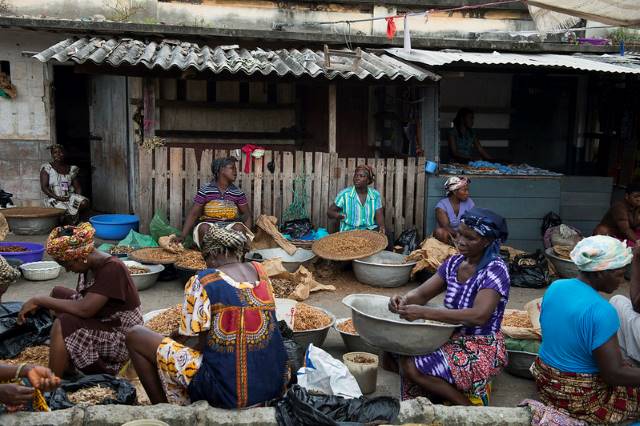The United States, acting through the U.S. Agency for International Development (USAID), has committed more than US$14billion in humanitarian and development assistance since June 2022 in more than 47 countries to address the global food security crisis exacerbated by Putin’s brutal and unprovoked war on Ukraine. Putin allegedly violated Ukraine’s territorial sovereignty. His troops have devastated the economy and killed several thousands of civilians, including children, while thousands more were forced to flee the country. In addition, the war has created global instability.
USAID Administrator and Feed the Future Global Coordinator, Ms. Samantha Power, during her working visit to Tanzania in East Africa, told reporters at the media conference late June that United States would provide new funding through the United States global hunger initiative programme ‘Feed the Future’, which was designed at this current critical time as new interlocking and compounding shocks exacerbate existing food needs.
In connection with that, it has also pledged US$260million in additional funding to address the global food crisis, with an estimated 768 million people already facing chronic hunger as a result of climate change, natural disasters combined with global economic instability.
As part of this effort, Samantha Power said the United States would make more investments as appropriate to bolster its regional and bilateral programmes as well as its agricultural and nutrition efforts in countries across Africa and Asia that the crisis has hit hardest.
The new assistance includes programmes to leverage the private sector, boost local fertiliser production, and improve soil health – including through the Vision for Adapted Crops and Soils, increase food yields by helping farmers adopt climate-smart practices, increase water access for farming communities, reduce food loss and strengthen food market systems, and fight and prevent malnutrition.
She reminded that President Biden announced during the G7 Leaders’ Summit in June 2022 to respond to immediate needs and sustainable, near-term food assistance worth US$2.76billion, adding that as it has been over the years, the United States would continue its support. The United States is committed to essential development efforts in the region and across Africa.
She highly praised President Samia’s commitment to democratic reforms and how open engagement has made it possible to expand development cooperation. That task has been made easy and will be made easier by additional governance reforms. This development agreement represents a chance to double down on some of the successes that we have achieved together in recent years, particularly in the realms of health, food security and clean energy.
In order to have complete insights into appropriate ways to ensure food security, Samantha Power held discussions with a cross-section of local farmers. USAID is already looking beyond public sector financing to public private partnership. With entrepreneurial activity, she interacted with young men and women. She reassured that “USAID programming in Tanzania has to have young people at the heart of it, and I think that is what we are doing more and more”.
“USAID is bringing electricity and telecommunications to 100 rural health facilities. 100 rural health facilities. That’s on top of what we do through Power Africa to electrify so many households in this country using solar and other renewable, cheap, safe, green, clean energy. But I do want to emphasise again this particular focus on health facilities and electrification,” she said.
“USAID really believes not only in development, not only in sustainable development, but we believe in sustainable inclusive development. The collateral damage caused by Putin’s invasion of Ukraine – Ukraine being one of the breadbaskets of the world on food security – for example, on fertiliser prices and supply chains. The United States has long been the largest humanitarian donor in the world, and that’s in terms of emergency relief assistance. Last year, we shattered all records in terms of how much we contributed to humanitarian assistance. The figure is a staggering US$12billion, the vast majority of that US$12billion in humanitarian assistance has flown to Africa, specifically to sub-Saharan Africa,” according to Samantha.
“This funding is critical to advance the US Government’s response to the global food security crisis by mitigating the ongoing fertiliser shortage, increasing investments in agricultural capacity and resilience, and cushioning the impact of macroeconomic shocks. These strategic investments have allowed USAID, in collaboration with local partners and governments, to make a difference on the ground during the crisis: equipping farmers with fertiliser so they can continue to grow crops, enabling small and medium businesses to stay open, and ensuring businesses can continue to produce safe, nutritious foods at affordable prices,” USAID said in a statement.
As the lead for the whole-of-government Feed the Future initiative, USAID added that it is committed to addressing this historic food crisis, “but we cannot do this alone. Fighting global hunger is a collective effort, and we urge other donors to step up. Together, we can cultivate a more prosperous and resilient future for all”, according to the official statement posted to its website.










